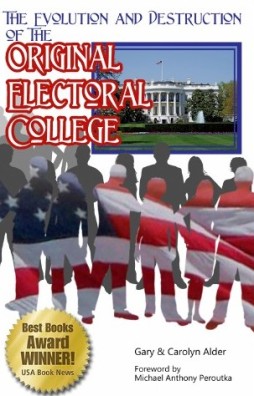Lesson 4 Assignment 1
Student Responses:
“It is the written Constitution which secures and protects rights. We the people have delegated certain limited and enumerated powers to the national government. Those in power are to stay within the bounds the Constitution has set. This is what allows freedom. In any other form of government, there is no guarantee of protection of rights. In a democracy, the majority rule. In a monarchy, dictatorship, fascism, communism, etc. it is entirely up to the rulers how much freedom is granted. This complex constitutional representative republic is the Founders Freedom Formula which was designed to select representatives of the people and of the states to be elected for different length of terms by different methods of selections and to represent different interests. This not only separates the branches of jurisdiction, but also checks the powers and balances different interests. The U.S. Constitution was written to control the government and not to control the people.”
—Carolyn Alder
“A written constitution is really most needed in a Republic than in any other form of government. My understanding of this is that other forms of government would be led by a monarchy or oligarchy-type of leadership that changes and adjusts to their own will and desires. In this situation there would not be a need for a written constitution because the rules and laws would always be changing.
In a Republic, where the goal is to specify rights of the people and put limitations on what the government leaders are allowed to do, the laws and restrictions need to be recorded and made known to the people so that they may be referred to and remain consistent. By putting a constitution in writing (or in print), it may also be agreed to with written consent or signatures – thus making it a contract.
The writing of the U.S. Constitution was a phenomenal occurrence in the ability of the framers to find some agreement among their many differences, and to foresee the needs of a growing nation and consider how those needs and potential changes could best be met. The men who wrote the Constitution were wise in their understanding of the tendencies of men to seek more and more power once they had it, and they tried to place bridles on that potential problem as much as possible. They were also unselfish in their position to think more of the freedom of their posterity, than to seek power and glory for themselves.”—Melinda Peterson
“A representative government needs to have a constitution more than any other form of government. Because the government is run by representatives of the people the representatives need to have guidelines set for them by the people they represent.
Other governments such as Monarchy or Oligarchy’s are decided on a whim by the ruling class. They have no need to have guidelines because they can change them on a whim. So the single entity that creates the rules can and will change them for their best interest. Not having to follow their own rules and having the ability to change them to benefit themselves. A constitution would be some what worthless.
Unlike in a republic it takes the votes and approval from 3 different organizations (President, Senate and the house) to effect change. that may be reversed back by the judges. In my mind this should result in very thought out changes… ‘Should'”
—Jacob Cheney
A written constitution is important in providing guidelines to those that govern and those that are governed. In a government set up to protect the rights of the people it is tantamount that the constitution be written. This provides for a key to those that govern and to those that are governed of the specific duties and the limitations of the government. If it were not written down, the government may operate as it was set up to begin with, but it would soon become tyrannical as those in power seek to expand their authority and would claim that the powers were there to begin with. At least with a written constitution, the people have some hope of keeping the government in check.”
—Blake Tuddenham


